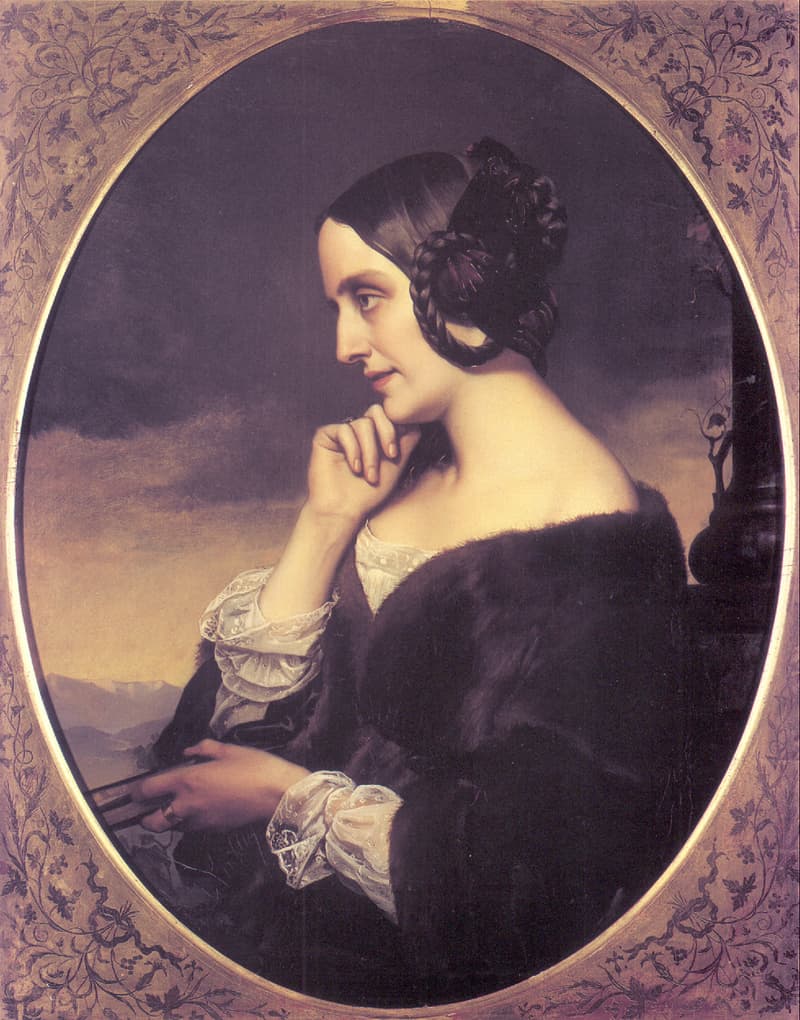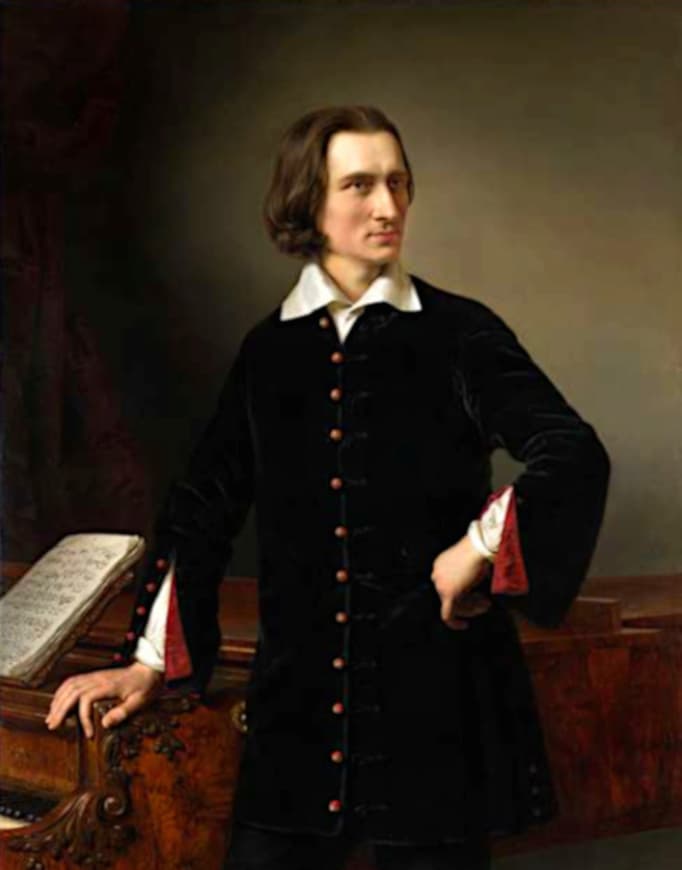It's all about the classical music composers and their works from the last 400 years and much more about music. Hier erfahren Sie alles über die klassischen Komponisten und ihre Meisterwerke der letzten vierhundert Jahre und vieles mehr über Klassische Musik.
Total Pageviews
Thursday, January 18, 2024
Diana Krall - So Nice (Live In Rio)
Tony Bennett - Fly Me to the Moon (Official Audio)
Wednesday, January 17, 2024
'La Donna E Mobile'
'La Donna E Mobile'
:max_bytes(150000):strip_icc():format(webp)/164445553-56a153915f9b58b7d0be4d2d.jpg)
Hiroyuki Ito/Hulton Archive / Getty Images
The aria for lyric tenors known as "La donna e mobile" is the centerpiece of the opera "Rigoletto," Giuseppe Verdi's twisted tale of lust, desire, love, and deceit. Composed between 1850 and 1851, Rigoletto was adored by audiences when it first premiered at La Fenice in Venice on March 11, 1851, and even now, over 150 years later, it is one of the world's most performed operas. According to Operabase, which gathers statistical information from opera houses around the world, Verdi's "Rigoletto" was the 8th-most performed opera in the world during the 2014/15 season.
The Context of "La Donna e Mobile"
The Duke of Mantua sings this unforgettable aria in the third act of Verdi's Rigoletto as he flirts with Maddalena, the sister of the assassin Sparafucile. Rigoletto, the Duke's right-hand man, and his daughter, Gilda, who has fallen in love with the Duke, pay a visit to Sparafucile. Rigoletto is very protective of his daughter and wants to have the Duke killed since he is a man that cannot be trusted with women.
When they reach the inn in which Sparafucile is staying, they hear the Duke's voice bellowing within singing "La donna e mobile" ("Woman is fickle") as he puts on a show for Maddalena with hopes of seducing her. Rigoletto tells Gilda to disguise herself as a man and escape to a nearby town. She follows his instructions and sets out into the night while Rigoletto enters the inn after the Duke leaves.
When Rigoletto makes a deal with Sparafucile and hands over his payment, a calamitous storm rolls in for the night. Rigoletto decides to pay for a room at the inn, and Gilda is forced to return to her father after the road to the nearby town becomes too dangerous to traverse. Gilda, still disguised as a man, arrives just in time to hear Maddalena make a deal with her brother to spare the Duke's life and instead kill the next man that walks into the inn. They will bag the body together and give it to the duped Rigoletto. Despite his nature, Gilda still loves the Duke deeply and resolves herself to put an end to this dilemma.
Italian Lyrics of "La donna e mobile"
La donna è mobile
Qual piuma al vento,
Muta d'accento — e di pensier.
Sempre un amabile,
Leggiadro viso,
In pianto o in riso, — è menzognero.
È sempre misero
Chi a lei s'affida,
Chi le confida — mal cauto il cuore!
Pur mai non sentesi
Felice appieno
Chi su quel seno — non liba amore!
La donna è mobile
Qual piuma al vento,
Muta d'accento — e di pensier,
E di pensier,
E di pensier!
English Translation
Woman is fickle
Like a feather in the wind,
She changes her voice — and her mind.
Always sweet,
Pretty face,
In tears or in laughter, — she is always lying.
Always miserable
Is he who trusts her,
He who confides in her — his unwary heart!
Yet one never feels
Fully happy
Who on that bosom — does not drink love!
Woman is fickle
Like a feather in the wind,
She changes her voice — and her mind,
And her mind,
And her mind!
Giuseppe Verdi, Và pensiero (Nabucco)
Liszt Hungarian Rhapsody No.2 • Volker Hartung • Cologne New Philharmonie
MSO celebrates 98 years of music with grand concert
Guest conductor Olivier Ochanine and Filipino violinist Diomedes Saraza Jr.
By MANILA TIMES
Embarking on the illustrious journey towards its centennial milestone, the Manila Symphony Orchestra joyously commemorates its 98th anniversary with a captivating concert gala that will bring together the elegant and graceful sound of the violin and the majestic but lyrical timbre of the MSO.
Titled "Peña, Nielsen, & Tchaikovsky: The MSO 98th Anniversary Concert," this performance is scheduled on January 31 at 7 pm at the Carlos P. Romulo Auditorium in RCBC Plaza.
Headlining the concert is esteemed Filipino Violinist, Diomedes Saraza, Jr., a distinguished Juilliard graduate and the first Filipino violin soloist to grace Carnegie Hall. Saraza currently serves as the concertmaster of the MSO.
Guiding the orchestra with expertise is guest conductor Olivier Ochanine, the acclaimed winner of the 2015 Antal Dorati International Conducting Competition in Budapest, Hungary. Ochanine is also recognized as the former musical director of the Philippine Philharmonic Orchestra, which previously performed at Carnegie Hall alongside Saraza. The event promises to be an exciting and memorable musical experience that will leave concert-goers enthralled.
The repertoire for the evening includes Angel Peña's "Trinity," Carl Nielsen's Symphony No. 1, and Pyotr Ilyich Tchaikovsky's Violin Concerto No. 1, all masterpieces poised to elevate the senses and transport the audience to new musical heights.
Tuesday, January 16, 2024
You Don't Have To Say You Love Me ( 1966 ) - DUSTY SPRINGFIELD - Lyrics
Monday, January 15, 2024
Johann Strauss II: Emperor Waltz op. 437 | Musikverein Vienna
Sunday, January 14, 2024
Church music classics from the Baroque to modern times
Bert Kaempfert - Wonderland By Night (1960) 4K
The World We Knew (Over And Over)
Saturday, January 13, 2024
Glenn Miller - Chattanooga Choo Choo - Sun Valley Serenade (1941) HQ
THE LAST WALTZ - (ENGELBERT HUMPERDINCK / Lyrics)
Let’s meet in the Rat hole! Franz Liszt and Marie d’Agoult
by Georg Predota
“She was beautiful, very beautiful, a Lorelei: slender, of lofty bearing, enchantingly graceful and yet dignified in her movements, her head proudly raised, with an abundance of fair tresses, which waved over her shoulders like molten gold, a regular, classic profile, which stood in strange and interesting contrast with the modern breath of dreaminess and melancholy that was spread over her countenance; these were the general features which rendered it impossible to overlook her in the salon, the concert-room, or the opera-house, and these were enhanced by the choicest toilets, the elegance of which was surpassed by few, even in the salons of the Faubourg St. Germain.

Portrait of Marie d’Agoult by Henri Lehmann, 1843
That fantastic dreams were hidden behind the purity of her profile, and passion, burning passion, under the soft melancholy of her expression, was known to but a few, at the time that her connection with the young artist began.” The lady in question — described by the early Liszt biographer Lina Ramann — was none other than Marie Catherine Sophie d’Agoult. Born Marie Flavigy in Frankurt am Main, she was sent to Paris at the age of sixteen. Once she had finished her education at the Sacré Coeur, and after a torrid affair with the poet Alfred de Vigny, she married the Comte Charles d’Agoult in 1827. He was fifteen years her senior, an ill-mannered and hardly functioning war veteran, and love was simply not part of the equation. They did have two children, but by and large, they conducted an open marriage. That left Marie — who described herself as six inches of snow covering twenty feet of lava — with plenty of time to enjoy the sparkling gaiety of the salon.
In early 1833, the Marquise Le Vayer invited Marie to sing in a women’s choir. The guest of honor was Franz Liszt. In her memoirs, Marie details this first encounter: “I use apparition because I can find no other word to describe the sensation aroused in me by the most extraordinary person I had ever seen. He was tall and extremely thin. His face was pale and his large sea-green eyes shone like a wave when the sunlight catches it. His expression bore the marks of suffering. He moved indecisively and seemed to glide across the room in a distraught way, like a phantom for whom the hour when it must return to the darkness is about to sound. Franz spoke with vivacity and with an originality that awoke a whole world slumbering in me. The voice of the young enchanter opened out before me a whole infinity, into which my thoughts were plunged and lost. Between us there was something at once very young and very serious, at once very profound and very serious.”
Marie was six years older than the young enchanter, and by the early summer of 1833 their affair was in full bloom. Liszt visited her in Croissy, and Marie came to Paris where they secretly met in a small apartment affectionately referred to as the “rat hole.” The chemistry was unmistakable, and by May 1833 she wrote, “Sometimes I love you foolishly, and in these moments I comprehend only that I could never be so absorbing a thought for you as you are for me.”

Franz Liszt, 1847
Liszt’s declaration of love was not far behind, and burning with desire he writes: “How ardent, how glowing on my lips is your last kiss! Marie, Marie, let me repeat that name a thousand times. It lives within me, burns me and threatens to consume me. I am not writing you; I am with you. Oh for an eternity in your arms. There is heaven and hell, and everything else, inside you, yes, inside you. Let me be wild and crazy. I am beyond help.” Concordantly, Liszt introduced himself to the public as a mature and original composer with his poetic Harmonies poétiques et religieuses and a set of three Apparitions. However, these early days of courtship did not run entirely smoothly. Some of the love letters he had written to Adèle de Laprunarède following their winter tryst in the Savoy came into Marie’s hands and sparked a violent jealous row. Although he pleaded with her to accept the letters as immature follies, Marie never really forgave him. In addition, Marie’s six-year-old daughter Louise fell ill, and within a couple of days died from massive inflammation of the brain.
It is unclear whether Marie considered this tragedy a punishment for her illicit affair with Franz, but in her state of depression and despair, in which she contemplated suicide, she refused to answer his calls or his letters. After nearly six months of being unable to see Marie, Franz wrote her a letter announcing his intention of leaving France, and expressing his desire to see her one last time. Marie relented and travelled to Paris for an emotional reunion in March of 1835. Blandine, their first daughter, was born nine months later.
